Search Results
Showing results 1 to 20 of 33
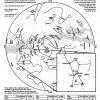
Supernova Star Maps
Source Institutions
This fun astronomy activity allows learners to experience finding stars in the night sky that will eventually go supernova. This activity is perfect for a star party outdoors.
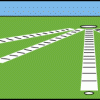
The Size and Distance of the Planets
Source Institutions
In this activity, learners investigate the concepts of relative size and distance by creating a basic model of the solar system.

The Thousand-Yard Model
Source Institutions
This is a classic exercise for visualizing the scale of the Solar System.
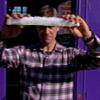
Jem's Pykrete Challenge
Source Institutions
In this activity, learners make pykrete by freezing a mixture of water and a material like cotton wool, grass, hair, shredded paper, wood chips, or sawdust.

Measuring Wind Speed
Source Institutions
In this indoor and/or outdoor activity, learners make an anemometer (an instrument to measure wind speed) out of a protractor, a ping pong ball and a length of thread or fishing line.
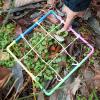
Counting With Quadrants
Source Institutions
Millions of organisms can live in and around a body of water.

Soil Profile
Source Institutions
In this activity, learners will create a soil profile in a bottle. They will learn about the organic and inorganic matter found in soil and observe as it separates into layers in the bottle.
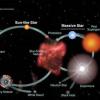
Supernovae in the Lives of Stars
Source Institutions
Many people think the different stages in the life of a star are actually different types of stars, rather than just stages in the life of a single star.
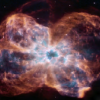
Telescope Treasure Hunt
Source Institutions
This hands-on astronomy activity lets learners hunt for different objects in the night sky that contribute to stellar and planetary formation, using a Treasure List.

It's the "Rain," Man
Source Institutions
In this weather forecasting activity, learners use common materials to construct a rain gauge and measure daily, monthly, and yearly rainfall.
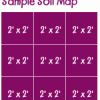
Creating a Soil Map
Source Institutions
In this activity, learners investigate soil conditions by creating a soil map. Learners record soil characteristics and compare the conditions of soil in different grid sections.

Wind Mapping with Bubbles
Source Institutions
Discover the wind's direction using bubbles, a map and a keen eye. Learners blow bubbles and note their general direction on a map, taking readings from different points around a building.
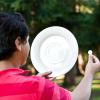
Big Sun, Small Moon
Source Institutions
Learners will explore the concept of angular distance, and investigate why the moon appears to be the same size as the sun during a solar eclipse, despite the sun being much larger.
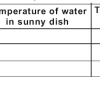
Cool Trees
Source Institutions
This warm weather activity introduces learners to the impact trees have on blocking the sun's heat and reducing temperature on the Earth's surface.

Moon Watch Flip Book!
Source Institutions
In this activity, learners observe the moon each night for a month and draw their observations in a Moon Watch Log.
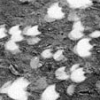
How to View a Solar Eclipse
Source Institutions
This is an activity to do when there is a solar eclipse!

Trash Traits
Source Institutions
In this activity on page 24, learners perform experiments to examine whether or not trash can float, blow around, or wash away.
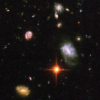
Telescopes as Time Machines
Source Institutions
This fun, nighttime hands-on astronomy activity lets learners explore how long it takes for light from different objects in the universe to reach Earth.

How Big Were the Dinosaurs?
Source Institutions
In this activity (located on page 4 of PDF), learners gain insight into the actual size of dinosaurs and practice making estimations and measurements.
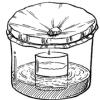
Rain Machine (Solar Still)
Source Institutions
In this activity, learners work in groups to build simple solar stills filled with salt water. After the stills are complete, learners observe what happens when they place the stills in the sun.
